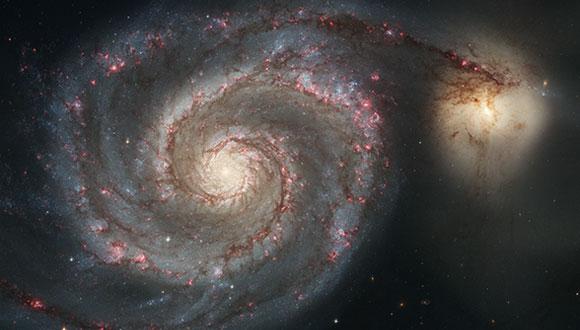Astronomy & Astrophysics Seminar: Extremely magnified stars in cluster lenses
Asheesh Mina, Ben Gurion University
Zoom: https://tau-ac-il.zoom.us/j/87230679135?pwd=Y1duRlArUkJwSnhaaXVscUU0azY3Zz09
Abstract:
The first serendipitous detection of a highly magnified star in a spiral galaxy (z=1.49) lensed by a foreground galaxy cluster, MACS1149 (z=0.54), has opened a new window to observe stars at cosmological distances. Since then, several other lensed stars have been detected in HST imaging of various galaxy clusters, and nearly all galaxy clusters observed by JWST revealed lensed star candidates. Observing highly magnified stars at cosmological distances is a combined result of strong- and micro-lensing effects. The presence of point-like masses (such as stellar-mass objects) in the lens leads to the formation of micro-critical curves and micro-caustics in the lens and source planes, respectively. Whenever a star in a strongly lensed galaxy crosses a micro-caustic, it gets highly magnified, which might make it observable briefly as a transient source. In my talk, I will discuss the basic idea behind detecting highly magnified stars in cluster lenses. I will also discuss our recent detection of lensed star candidates at z=4.8 in the MACS0647 galaxy cluster. The number of such lensed stars is expected to increase continuously, assisting us in probing the first stars and understanding the compact dark matter fraction in the intracluster medium.
Seminar Organizer: Dr. Jonathan Stern


